↧
Pop queen Faye Wong poses for fashion magazine
↧
Jessie Li in Paris for fashion week
↧
↧
Tang Yan poses for photo shoot
↧
Xu Lu in Paris for fashion week
↧
Pretty in Pink- Street shots of Fan Bingbing
↧
↧
China's film and TV industry struggles to focus on talent rather than popularity
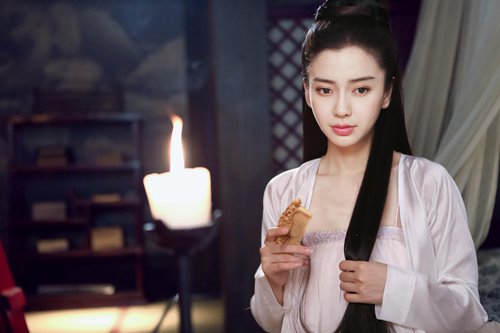
(Global Times) It's widely believed that a charming face and great figure are essential for anyone setting out on an acting career in the TV and film industry, however, when looks become more valuable than talent, things can go very, very wrong.
In recent years, a new type of idol has become all the rage in China : young highly attractive entertainment professionals known as xiaoxianrou, or "little fresh meat." Most of those labeled as "fresh meat" have large fan bases among young people - in other words, a huge pool of potential consumers - and thus have attracted huge investors to dominate the show business. The practice of finding and grooming these young entertainers has become so common that the term "appearance economy" has been coined to describe the trend.
The question in everyone's minds now is just how long will this appearance economy be the dominant force in the TV and film industry in China? Representatives at the on-going Two Sessions and industry professionals have made their intentions clear: Not long, if they have anything to say about it.
More than a face
"If you only want to watch pretty faces, why not go to a beauty pageant, instead of go see a film or TV show?" asked well-known Chinese director and producer Zheng Xiaolong, also a member of the National Committee of the CPPCC, when addressing the assembly at the Two Sessions on Saturday. Zheng went on to stress that it would be unhealthy for the creative industry to only focus on how actors and actresses looked, instead of the actual quality of their performances.
Zheng is not the only voice speaking out about the "fresh meat trend." A string of disappointing films and shows starring attractive stars has led to growing grievances among Chinese audiences.
For example, the 2017 film Once Upon a Time, an adaptation of the popular award-winning Chinese novel Three Lives Three World, Tens Miles of Peach Blossoms, was widely called by many moviegoers "the worst film of the year." The film has a 3.7/10 on Chinese media review site Douban, while the show's handsome male lead, 26-year-old actor Yang Yang, was widely criticized for his lack of acting talent.
Attractive performers with poor acting ability have become so common that miantan (facial paralysis) has become a common buzzword used in many reviews to describe their wooden performances.
Bad acting seems to pale in comparison to another trend that sees studios overly rely on post-production to churn out shows quickly and cheaply.
Many Chinese viewers jaws dropped open after they saw that many scenes in the TV series General and I (2017) simply features highly popular actress Angelababy standing in front of obvious greenscreen backgrounds instead of a real-life set. It has also become a trend among studios to make high use of body doubles and voice dubbing instead of actually bringing in actors and actresses to perform certain scenes as this can save both time and money.
"I think there is a difference between a real actor and someone who is merely a celebrity," said well-known Chinese actor Feng Yuanzheng at the Two Sessions when addressing China's "fresh meat" issue. He noted that while the former commit themselves fully to their roles, the latter tend to only worry about publicity.
Costly gamble
While the problems with such a superficial trend is clear, studios are under a lot of economic pressure to use every means at their disposal to bring in audiences, which sometimes means hiring idols more for their popularity than their talent.
"From a producers' perspective, we have a love-hate relationship with these 'fresh meat' idols. I think the real problem lies in the market itself," said Zhang Penghui, a veteran professional in China's film and TV industry, told the Global Times.
Zhang explained that these idols are a double-edged sword: On one hand these celebrities have huge fan bases that can increase a production's chances of turning a profit, but on the other hand, these idols tend to come at sky-high rates.
On average, around 60 percent to 70 percent of a production budget can be spent on these idols, according to Zhang. He pointed to last year's popular entertainment program, The Rap of China, as an example. It cost the studio around $100 million yuan ($15.85 million), half of the show's entire budget, to hire popular singer and actor Kris Wu (Wu Yifan) as a judge.
"It's like gambling. Producers stake everything they have on one or two young celebrities, leaving only a little bit of the budget left over for actual production. Of course this heavily impacts the quality of a production," Zhang explained.
He also pointed out that the rise of social media means Internet celebrities have become another pool from which studios are pulling from for their productions, the problem is that many of these social media influencers have no training or experience in acting.
Proposals by cultural representatives at the Two Sessions reflect that this is an issue that is being taken seriously.
For example, Zeng Fang, an entrepreneur in the creative industry, suggested raising taxes as a means to combat the over-heated market's rising salaries.
Zhang, however, has faith that the market will correct itself in time. "The market will self-adjust. When idols charge more than studios can afford, the latter will turn to other solutions and focus more on creativity. The market is always developing and needs this improvement anyway," said Zhang.
Source: Global Times by He Keyao
↧
More Oscar-nominated movies being distributed to Chinese movie audiences
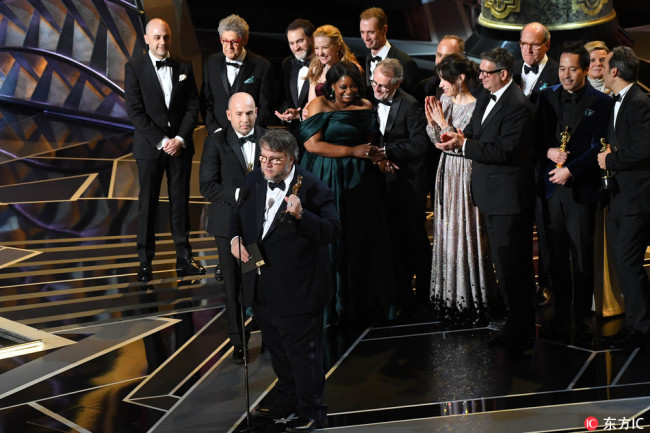

(Global Times) More Oscar-nominated movies are finally hitting theaters in China, empowering domestic audiences to feel a closer connection with the world's top global film contest.
The 90th Oscars ceremony was held Sunday evening at the Dolby Theatre in Los Angeles, while Chinese internet users found several nominated movies have been or will be released in China.
The Shape of Water, a fantasy flick about a woman who falls in love with a sea monster, led the pack with four total wins. The film will reportedly be released on March 16 in the Chinese mainland, news site yangtse.com reported.
Including The Shape of Water, four of the nine nominees for best picture will have been shown on the Chinese mainland by the end of March. Darkest Hour and Dunkirk were released in China in 2017, and the well-liked Three Billboards Outside Ebbing, Missouri is currently in Chinese theaters.
Of last year's nominees, five were eventually shown in China: La La Land, Arrival, Hacksaw Ridge, Manchester By the Sea and Lion. That represented a marked improvement on 2016's two nominees shown in China: The Martian and The Revenant.
A series of film industry cooperation agreements have been signed between China and the US since 2015 and a national union of artistic film projection was set up in 2016 in China.
"The new mechanism has opened a green channel for Hollywood films as well as US independent films to enter China," Shi Wenxue, a Beijing-based film critic told the Global Times on Tuesday.
China's blockbuster Wolf Warrior II was submitted for best foreign-language category at the 90th Oscars, but failed to be nominated.
"Picking a movie to submit was an 'act of State,' while the Oscar has its own standard for evaluation, a standard that does not focus on whether the product bolstered national image or promoted national policy," Shi said.
"China has its own prizes, so there's no need to sigh (that Chinese pictures did not win)," Shi said.
"We can still expect more Chinese films with humanitarian expression and international vision."
Source: Global Times
↧
'Operation Red Sea' tops Chinese box office

(Xinhua) Chinese anti-terrorism action film "Operation Red Sea" led the Chinese film market in the week ending March 4, earning 868 million yuan (about 137 million U.S. dollars), according to China Film News.
"Operation Red Sea" is loosely based on the evacuation of hundreds of Chinese citizens and foreign nationals from Yemen's southern port of Aden during the Yemeni civil war in late March in 2015.
The film tells the story of the Chinese Navy's elite special forces, Jiaolong Assault Team, who saved Chinese and foreign nationals in the war and foiled a terrorist plot to obtain nuclear materials to make dirty bombs. It has raked in nearly 3 billion yuan since its release on Feb 16.
"Detective Chinatown 2" came in second, making about 483 million yuan at the box office last week. It has sold 3.1 billion yuan in tickets since hitting Chinese screens on Feb 16.
The third place went to domestic adventure film "Monster Hunt 2," which took in 162 million yuan last week.
Documentary "Amazing China" landed in the fourth place, generating about 92 million yuan last week. The film was released on March 2.
Rounding out the top five was Sony's animated adventure comedy "Peter Rabbit," which has pocketed about 79 million yuan since its release on the Chinese mainland on March 2.
The Chinese box office grossed about 1.9 billion yuan last week, with nearly 53 million tickets sold.
Source: Xinhua
↧
Street shots of Liu Tao
↧
↧
Fan Bingbing in Paris for fashion week
↧
Janine Chang poses for fashion magazine
↧
Stills from Nice To Meet You
↧
Actress Felicity Jones poses for Chinese fashion magazine
↧
↧
Dong Jie poses for fashion magazine
↧
Li Xirui poses for fashion magazine
↧
Street shots of Jia Qing in NY
↧
Classic female characters in Chinese films and TV dramas
(China Daily) March 8 marks International Women's Day, a day of respect, appreciation and love toward women for their economic, political and social achievements in modern society.
In Chinese culture, women are always the focus of literary and artistic works. "She" can be tender, kind, pretty and wise on one hand, but also sexy, independent, considerate and straightforward on the other.
On the occasion of celebrating the festival, let's review some classic female characters from numerous Chinese TV dramas and films.
![]()
![]()
![]()
![]()
![]()
![]()
![]()
![]()
![]()
![]()
![]()
![]()
![]()
![]()
![]()
In Chinese culture, women are always the focus of literary and artistic works. "She" can be tender, kind, pretty and wise on one hand, but also sexy, independent, considerate and straightforward on the other.
On the occasion of celebrating the festival, let's review some classic female characters from numerous Chinese TV dramas and films.

Character: Andy Liu
Played by: Liu Tao
Key qualities: Career-oriented, intelligent, hardworking
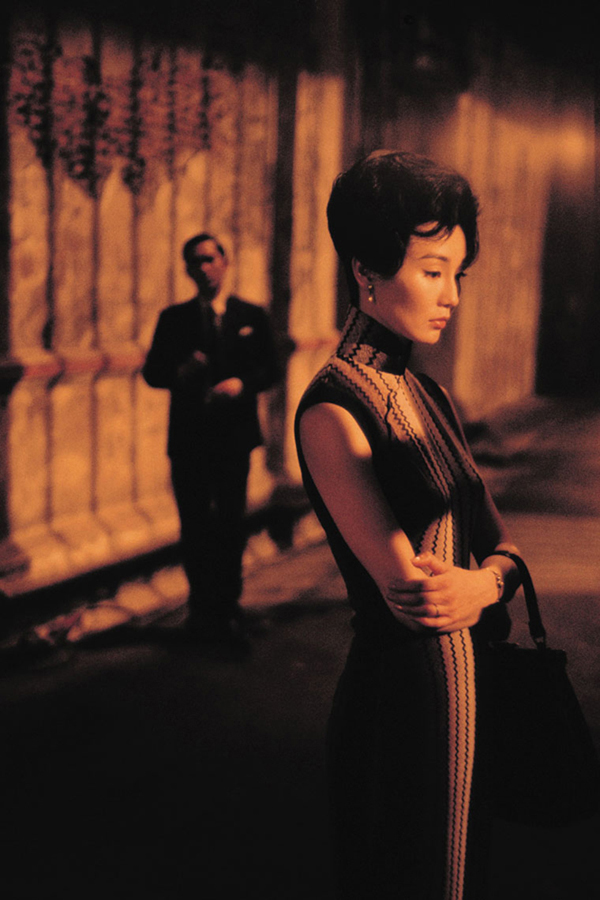
Character: Su Lizhen
Played by: Maggie Cheung
Key qualities: Elegant, sexy
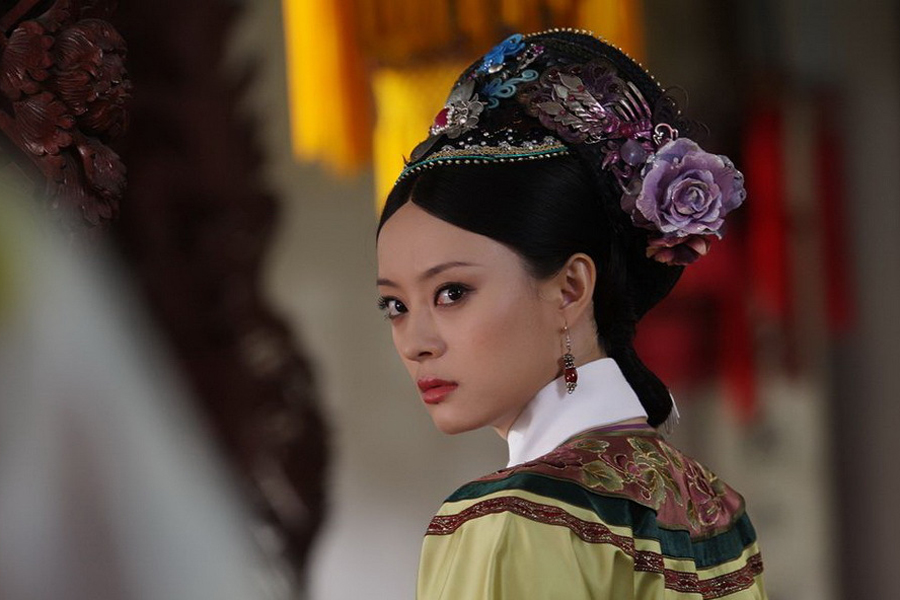
Character: Zhen Huan
Played by: Sun Li
Key qualities: Sophisticated, crafty, ambitious
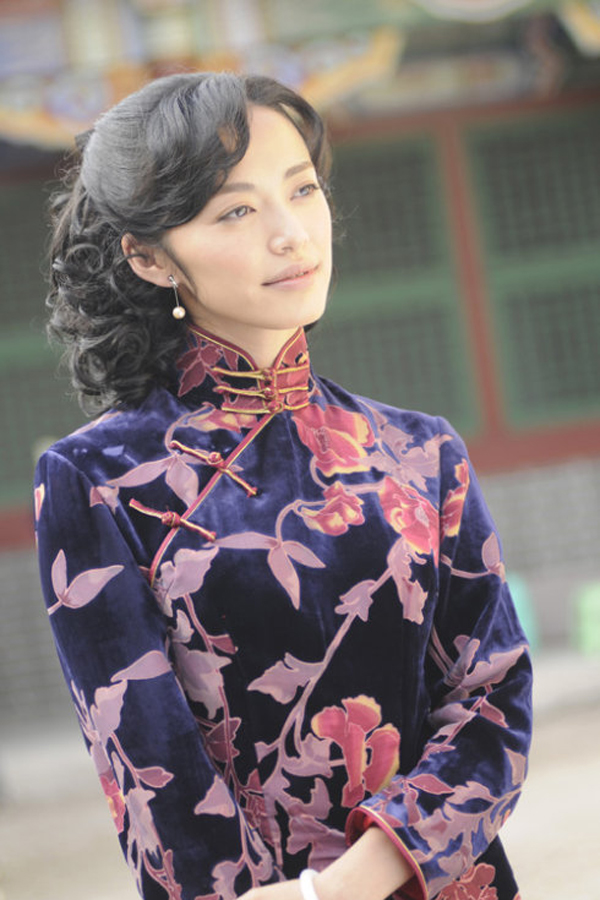
Character: Cui Ping
Played by: Yao Chen
Key qualities: Being clear about what to love and what to hate

Character: Wu Zetian
Played by: Liu Xiaoqing
Key qualities: Ambitious, powerful, cruel
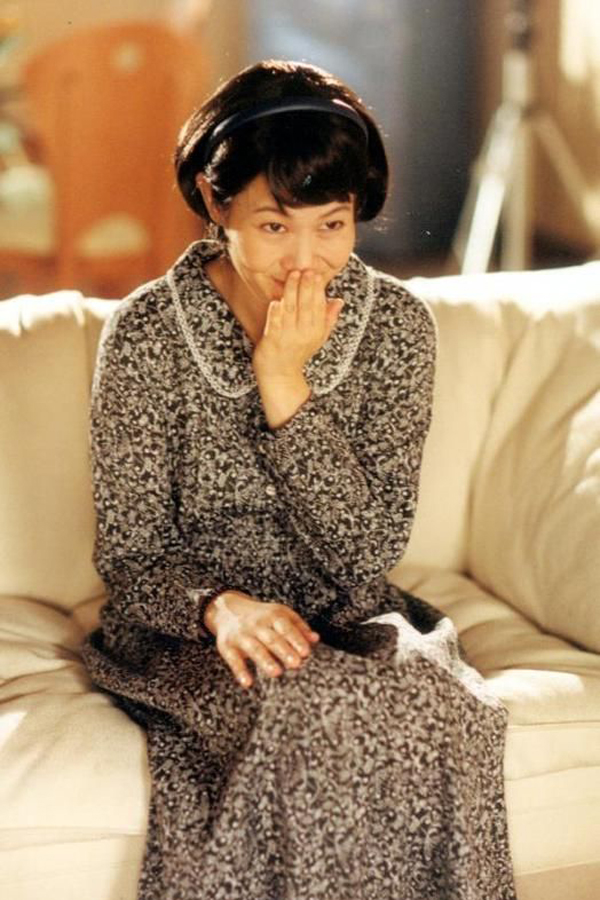
Character: Fang Xiaoping
Played by: Rene Liu
Key qualities: Funny, devoted to marriage
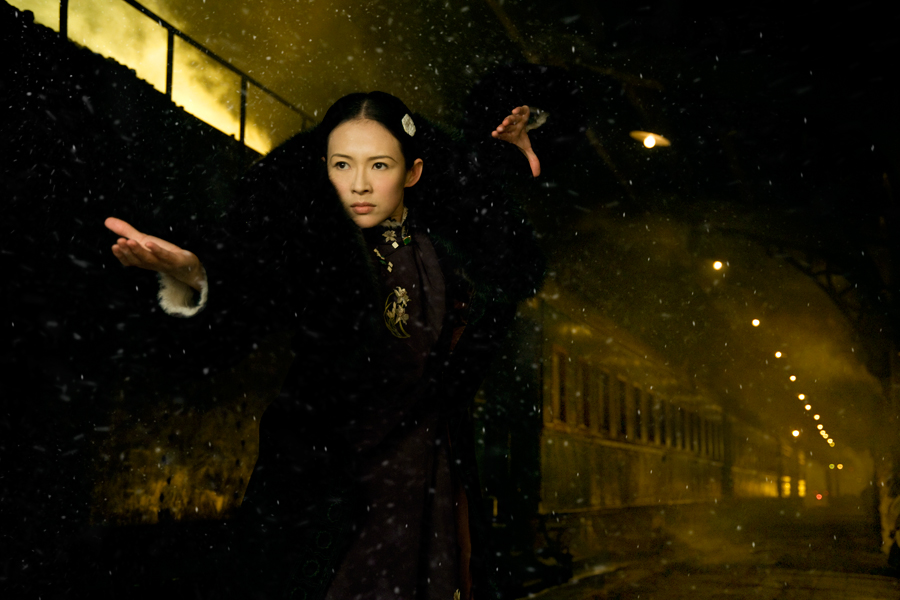
Character: Gong Er
Played by: Zhang Ziyi
Key qualities: Moral, patriotic
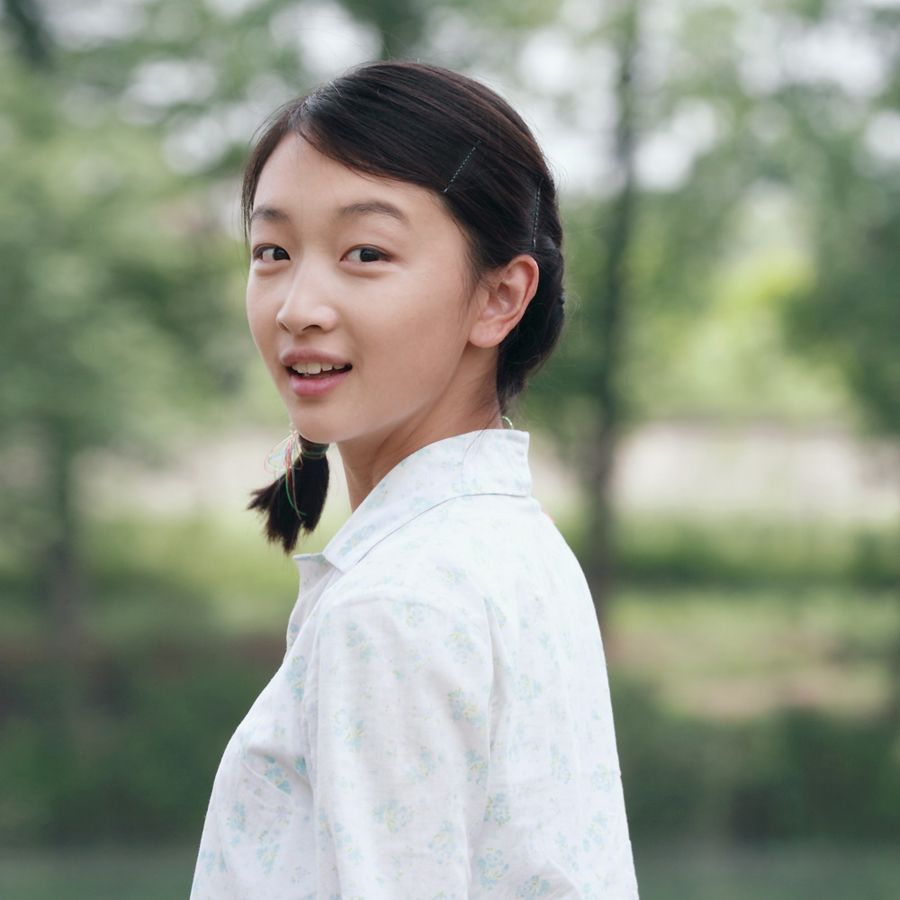
Character: Jing Qiu
Played by: Zhou Dongyu
Key qualities: Pure, pretty, shy

Character: Xiao Qian
Played by: Joey Wong
Key qualities: Appealing, good-looking, tender

Character: Gu Xiaomeng
Played by: Zhou Xun
Key qualities: Shrewd, prudent, brave, fearless
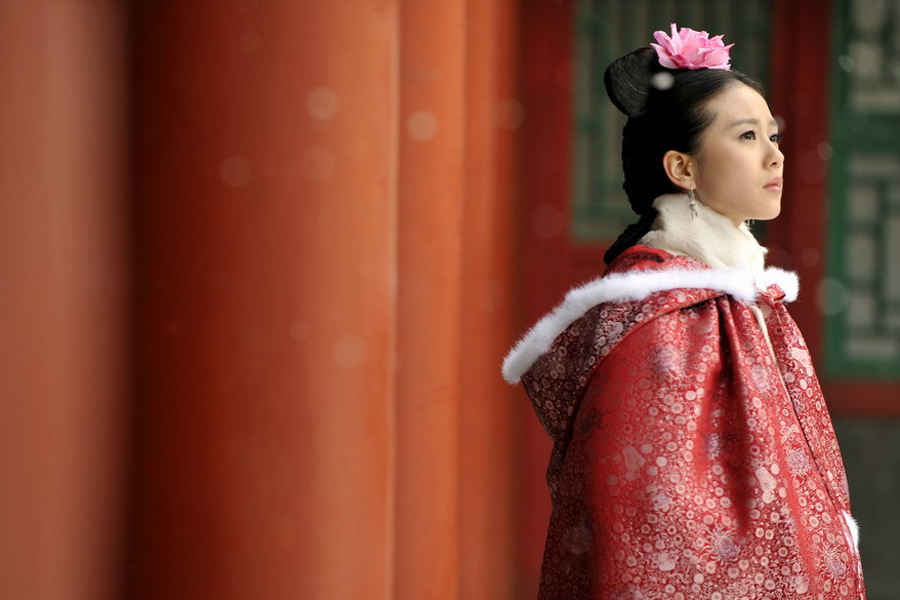
Character: Ma'ertai Ruoxi
Played by: Liu Shishi
Key qualities: Persistent, sharp-minded, taking friendship seriously
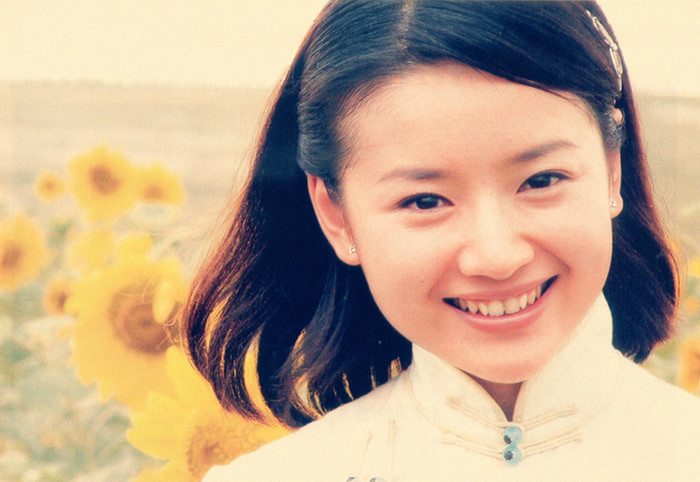
Character: Leng Qingqiu
Played by: Dong Jie
Key qualities: Noble, elegant, pure

Character: Luo Zijun
Played by: Ma Yili
Key qualities: Independent, confident, fashionable
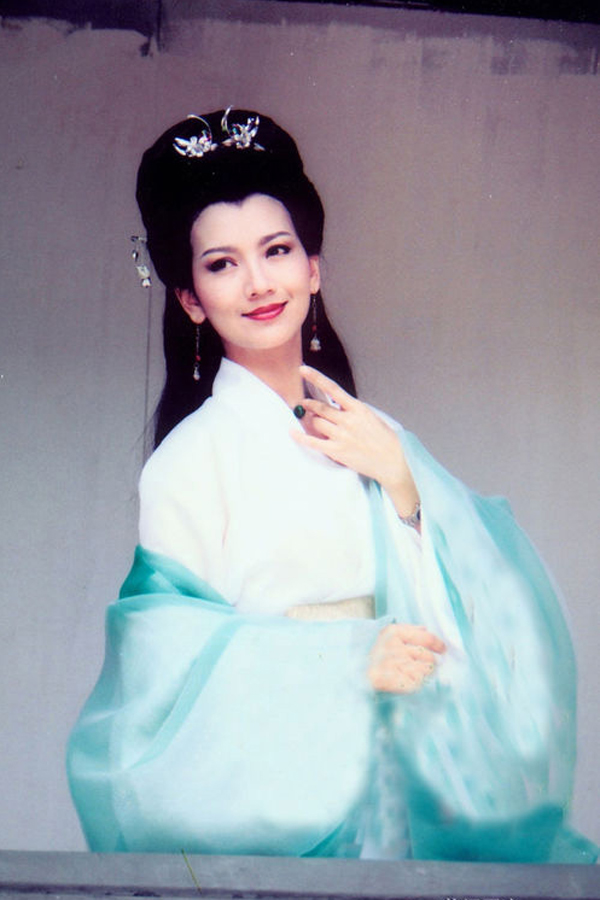
Character: Bai Suzhen
Played by: Angie Chiu
Key qualities: Strong, kind, thoughtful, beautiful
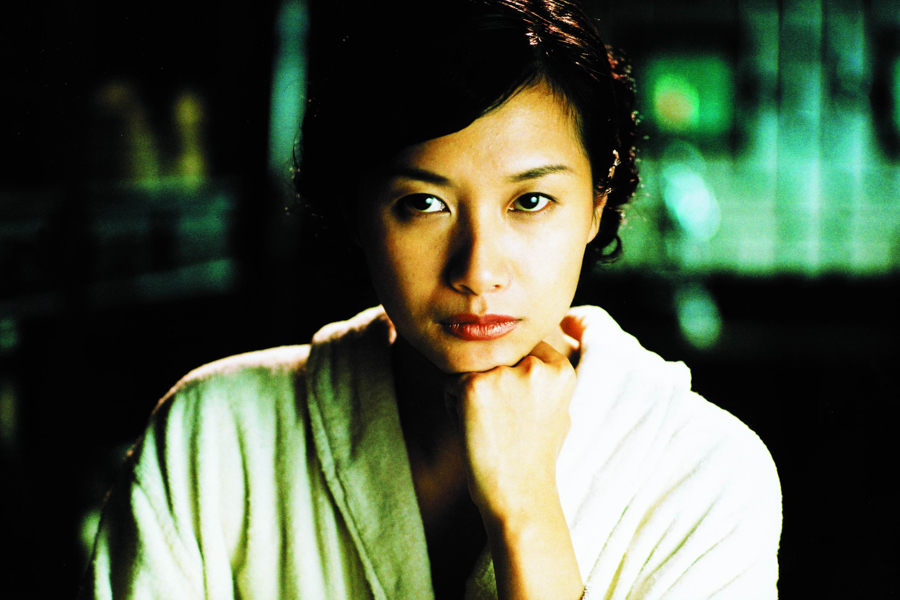
Female image: Unknown Woman
Played by: : Xu Jinglei
Key words: spoony
Source: By Zhang Xingjian | chinadaily.com.cn
↧
↧
China Documentary ‘The Silk and the Flame’ Bought by Juno (Exclusive)
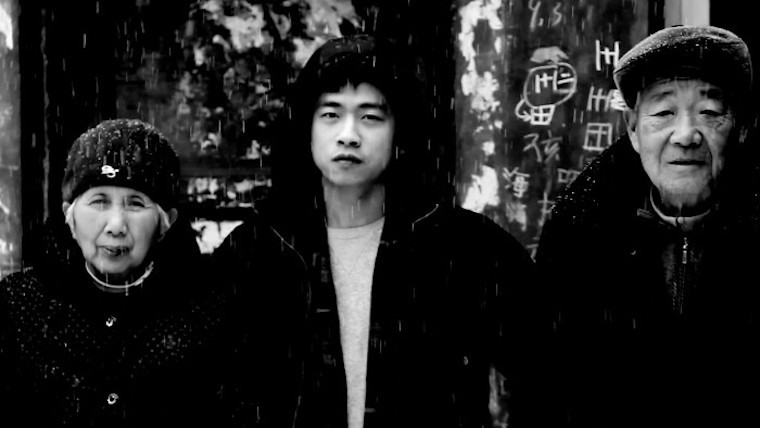
(Variety) Juno Films has acquired worldwide rights to Jordan Schiele’s contemporary China documentary, “The Silk and the Flame.”
The film premiered at Berlin Film Festival, where it was nominated for the festival’s Teddy Award for top documentary. After an international festival campaign, it will have a nationwide theatrical release later in 2018 followed by other select territories.
“The Silk and the Flame” chronicles a man’s journey from Beijing to his familial home in the provinces for the Chinese New Year. Nearing 40 and still single, he returns to visit his deaf-mute mother and invalid father, whose dying wish is to see his son wedded to the right woman and starting a family of his own — although he would prefer to find the right man. Ever the dutiful son, he finds himself sacrificing his own needs in order to fulfill his family’s expectations.
The film is an intimate look into everyday life in China, where the economic boom of the cities stands in stark contrast to the poverty experienced by those living in the countryside. Schiele uses stark black-and-white photography to illustrate how deeply entrenched the Confucian values that shape Chinese society are, the legacy of the social tumult of the 20th century, and the family’s own battle with the simple means of communication that most of us take for granted.
The deal was negotiated between Elizabeth Sheldon, Juno’s CEO and founder, and Schiele.
“Yao’s journey home is a quest to gain his ailing father’s love and acceptance and to reconcile with his family,” Sheldon said. “Jordan lyrically captures the conflict between Yao and his family while also capturing the strong bonds that unite them. Jordan’s portrait is aesthetically and emotionally haunting. I believe a diverse audience will be reminded of the power of film to tell compelling stories that neither judge nor proscribe.”
Source: Variety By Dave McNary
↧
‘Black Panther’ Leaps to the Top on Its First Day in China

(Variety) “Black Panther” sprang to the top of the Chinese box office Friday, approaching a sleek $20 million by the early evening of its first day of release in the film’s last major market.
The movie’s strong performance as it heads into multiplexes in China should help allay fears that Chinese audiences are cool towards black-themed movies.
By midday Friday in China, the Disney-Marvel Comic Universe film had grossed $9.87 million (RMB62.7 million), according to data from China Box Office. That climbed to $18 million (RMB115 million) by 7 p.m. At that point, “Black Panther” accounted for 57% of Friday’s gross revenues, ahead of big-budget patriotic documentary “Amazing China,” which came in second place with 19%. Last week’s dominant title, “Operation Red Sea,” eased down to third place with 8%.
Previews and midnight screenings for “Black Panther” were worth $1.45 million (RMB9.2 million) on Thursday, elevating the film’s running total to $19.5 million (RMB124 million) by 7 p.m. in China.
China is a notoriously tricky theatrical market to predict. Audience tastes are changing rapidly and can vary between the big metropolises and the smaller towns, where local Chinese fare tends to dominate. “Black Panther” is also the first substantial Hollywood title to release since Chinese New Year in February and the end of the unofficial blackout period during which local films are given distribution priority.
The early numbers reinforce predictions that “Black Panther” could enjoy a $60 million opening weekend in China and go on to exceed $100 million. The movie had already achieved high interest levels on popular consumer film site Maoyan, pointing to it being regarded as simply another Marvel superhero title, rather than a difficult-to-sell specialty film.
Source: Variety By Patrick Frater
↧
Hai Qing poses for fashion magazine
↧











































































